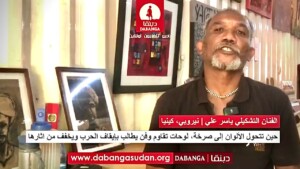Major overhaul in Sudan education curriculum
The Director of the National Centre for Curricula and Educational Research, Dr Omar El Garai, has announced that a new educational ladder of six years of basic school, three years of middle school, and three years of secondary school will be implemented in the academic year of 2020-2021.
 Students in El Nour El Nasfia Basic School for boys in El Fasher, North Darfur (File photo: Albert González Farran/Unamid)
Students in El Nour El Nasfia Basic School for boys in El Fasher, North Darfur (File photo: Albert González Farran/Unamid)
The director of the National Centre for Curricula and Educational Research, Omar El Garrai, has announced that a new educational ladder of six years of basic school, three years of middle school, and three years of secondary school will be implemented in the academic year of 2020-2021.
The current school system in Sudan consists of eight years of basic school and four years of secondary school. Secondary school students who get good grades are accepted at university.
El Garrai said in a news conference on Sunday evening: “The new educational approach will be light, graceful, not based on memorisation, but based on understanding”.
Civic education will be studied instead of military education, and philosophy, logic, and psychology are to be restored as secondary school subjects. Arts, theatre, and music will be restored at all levels and literary associations and school farming associations will be revived to turn schools into productive units.
‘The new educational approach will be light, graceful, not based on memorisation, but based on understanding’ – Omar El Garrai
El Garrai pointed out that extra-curricular activities, such as sports and housekeeping will be focused on. There will be a new curriculum for professional science and a new curriculum for students with special needs.
According to the new curriculum, students in the first three grades will be taught through games and play. The English language will be taught from kindergarten level in the curriculum, not from the third grade as is currently the case.
Education budget
The Sudanese Minister of Education has announced a gradual change of the educational system and a comprehensive review of the curricula. The budget for education will be substantially increased.
Education Minister Mohamed El Amin El Tom told reporters in Khartoum on September 9 that education in Sudan has collapsed. “It requires tremendous efforts to reach an inclusive and equitable quality education,” he said.
He reported the completion of the Ministry’s restructuring. The education budget will be raised to 20 percent of the state budget. Next year, enrolment into class one will be gratis.
Radio Dabanga’s editorial independence means that we can continue to provide factual updates about political developments to Sudanese and international actors, educate people about how to avoid outbreaks of infectious diseases, and provide a window to the world for those in all corners of Sudan. Support Radio Dabanga for as little as €2.50, the equivalent of a cup of coffee.












 and then
and then